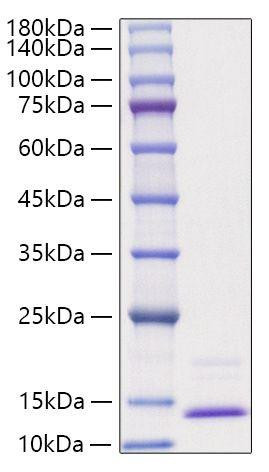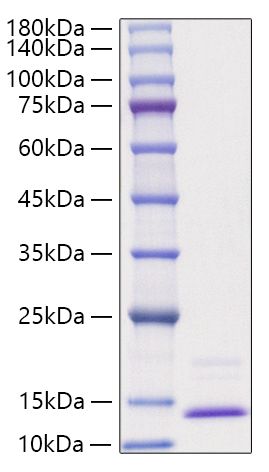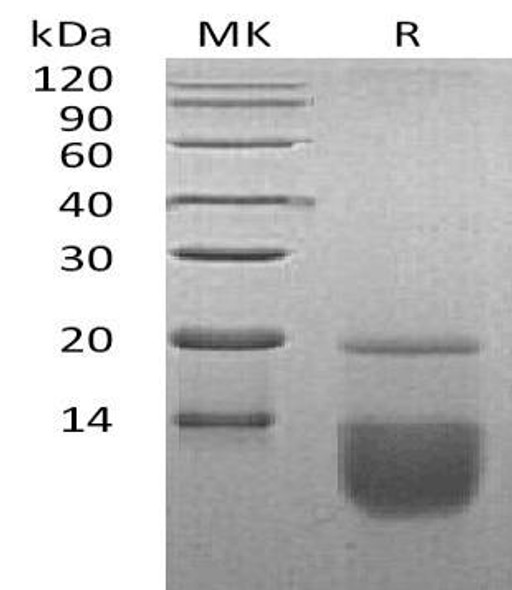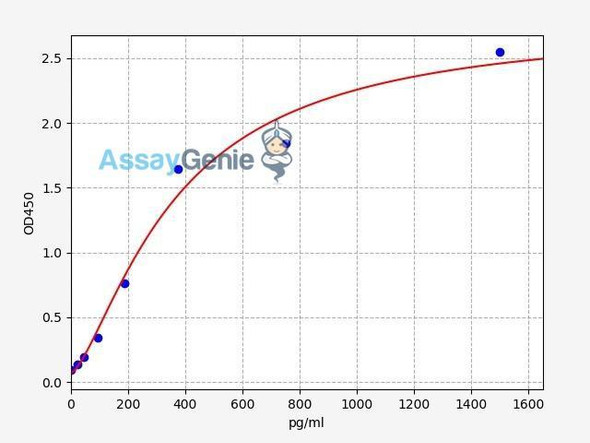Description
Recombinant Human CCL3/MIP-1 alpha Protein
The Recombinant Human CCL3/MIP-1 alpha Protein is a biologically active recombinant protein that plays a significant role in various cellular processes and signaling pathways in human biology. This protein is widely employed in immunological research, cell biology studies, protein-protein interaction analyses, and therapeutic development, providing researchers with a reliable tool for investigating CCL3/MIP-1 alpha function and its implications in health and disease.
This product (SKU: RPCB1109) is produced using advanced expression systems and features a No-tag tag for convenient detection and purification. The protein exhibits a calculated molecular weight of 7.78 kDa with an observed molecular weight of 10-15 kDa under denaturing conditions, achieving ≥ 90% as determined by SDS-PAGE., ensuring exceptional quality and consistency for research applications.
Key Features
| High Purity by Affinity Chromatography | |
| Mammalian & Bacterial Expression Systems | |
| High lot-to-lot consistency via strict QC |
| Product Name: | Recombinant Human CCL3/MIP-1 alpha Protein |
| SKU: | RPCB1109 |
| Size: | 10 μg , 20 μg , 50 μg , 100 μg |
| Reactivity: | Human |
| Synonyms: | CCL3, G0S19-1, MIP1A, SCYA3, C-C motif chemokine 3, G0/G1 switch regulatory protein 19-1, Macrophage inflammatory protein 1-alpha, MIP-1-alpha, PAT 464.1, SIS-beta, Small-inducible cytokine A3, Tonsillar lymphocyte LD78 alpha protein, Cleaved into: MIP-1-alpha(4-69), LD78-alpha(4-69) |
| Tag: | No-tag |
| Calculated MW: | 7.78 kDa |
| Observed MW: | 10-15 kDa |
| Gene ID: | 6348 |
| Protein Description: | High quality, high purity and low endotoxin recombinant Recombinant Human CCL3/MIP-1 alpha Protein (RPCB1109), tested reactivity in E. coli and has been validated in SDS-PAGE.100% guaranteed. |
| Endotoxin: | < 1 EU/μg of the protein by LAL method. |
| Purity: | ≥ 90% as determined by SDS-PAGE. |
| Formulation: | Lyophilized from a 0.22 μm filtered solution of PBS, pH 7.4. |
| Reconstitution: | Centrifuge the vial before opening. Reconstitute to a concentration of 0.1-0.5 mg/mL in sterile distilled water. Avoid vortex or vigorously pipetting the protein. For long term storage, it is recommended to add a carrier protein or stablizer (e.g. 0.1% BSA, 5% HSA, 10% FBS or 5% Trehalose), and aliquot the reconstituted protein solution to minimize free-thaw cycles. |
| Storage: | Store at -20℃.Store the lyophilized protein at -20℃ to -80 ℃ up to 1 year from the date of receipt. After reconstitution, the protein solution is stable at -20℃ for 3 months, at 2-8℃ for up to 1 week. |
CCL3 also known as macrophage inflammatory protein 1-a, is a member of the CC subfamily. It’s known that CCL3 is produced by monocytes/macrophages, lymphocytes, neutrophils as well as immune cells such as basophils, mast cells, fibroblasts, and dendritic cells. Meanwhile, CCL3 exerts various biological effects by binding to its three cell surface receptors, including CCR1, CCR3, and CCR5. MIP-1a induces a variety of pro-inflammatory activities such as leukocyte chemotaxis, and promotes the entry of T cells into the inflammatory tissue region from blood circulation. Chemotactic CD4+ cells, CD8+ cells, natural killer cells, and dendritic cells bind to the corresponding receptors and coordinate the occurrence of immune reactions in the immune response site by migrating through vascular endothelial cells. In addition, MIP-1a is considered as a key inflammatory mediator in granuloma, asthma, T1D as well as other autoimmune diseases.







